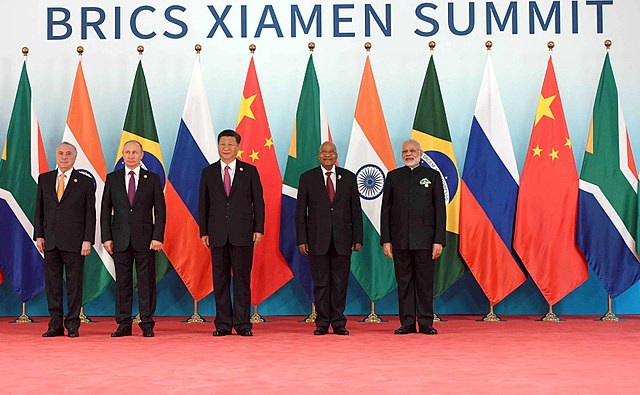Indonesia has officially joined the BRICS group of emerging economies, a significant milestone for the Southeast Asian nation and a move that strengthens the bloc's role as a counterweight to Western-dominated institutions. The announcement was made Monday by Brazil, which holds the rotating presidency of BRICS for 2025, and confirmed by Indonesia's Ministry of Foreign Affairs on Tuesday.
This development makes Indonesia, the world's fourth most populous nation and the largest economy in Southeast Asia, the latest addition to a bloc that already includes Brazil, Russia, India, China, and South Africa. The group recently expanded in 2024 to include Iran, Egypt, Ethiopia, and the United Arab Emirates, and discussions are ongoing with potential members like Saudi Arabia, Turkey, Azerbaijan, and Malaysia.
"The Brazilian government welcomes Indonesia's entry into the BRICS," read a statement from Brazil's foreign ministry. "With the largest population and economy in Southeast Asia, Indonesia shares with other members a commitment to reforming global governance institutions and contributes positively to deepening South-South cooperation."
Indonesia's Ministry of Foreign Affairs echoed this sentiment, describing the membership as a "strategic step" toward improving collaboration with other developing nations. "This achievement shows Indonesia's increasingly active role in global issues and its commitment to strengthening multilateral cooperation to create a global structure that is more inclusive and fair," the ministry stated.
The inclusion follows Indonesia's candidacy being approved during the 2023 BRICS summit in Johannesburg. However, Jakarta formally opted to join only after its newly elected government took office last year. Indonesia expressed gratitude to Russia, which chaired BRICS in 2024, for its support during the application process.
China, the bloc's largest economy, welcomed Indonesia's admission with enthusiasm. Chinese Foreign Ministry spokesman Guo Jiakun called Indonesia a "major developing country and an important force in the Global South," adding that its membership would "positively contribute to the development of the BRICS mechanism."
BRICS, initially an acronym coined by a Goldman Sachs economist to describe emerging markets poised for rapid growth, was formally established in 2009. Since then, it has expanded its scope and membership, positioning itself as a counterweight to the Group of Seven (G7) and focusing on reshaping global economic governance. Together, BRICS nations now account for nearly 45% of the global population and 35% of global GDP when measured using purchasing power parity.
A central objective of BRICS has been the "de-dollarization" of international trade. Many member countries, including Indonesia, have criticized the U.S. dollar's dominance in global finance and its perceived use as a political tool. The bloc has floated the idea of a common currency to facilitate trade among member states. Brazil has vowed to accelerate this initiative during its presidency, with President Luiz Inácio Lula da Silva emphasizing the need for "means of payment" to strengthen intra-BRICS commerce.
The U.S., however, has been vocal in its opposition to such moves. President-elect Donald Trump has threatened to impose 100% tariffs on BRICS nations should they replace the dollar in international trade, signaling potential friction as the bloc gains momentum.






